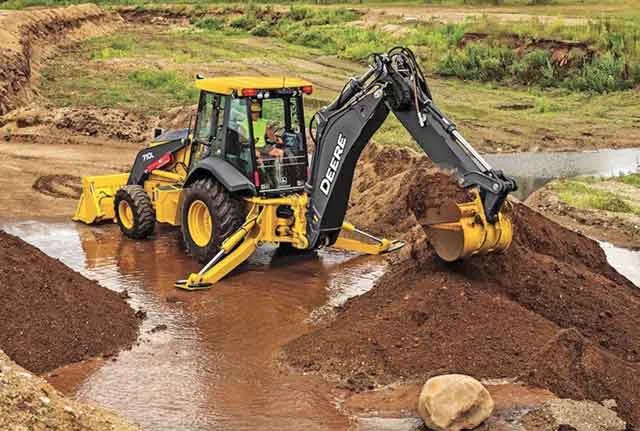Lancaster Excavation - Specialist Excavation Solutions in Lancaster, OH
Lancaster Excavation - Specialist Excavation Solutions in Lancaster, OH
Blog Article
Comprehensive Excavation Strategies: Mastering the Basics for Success
In the realm of building and civil engineering, the relevance of effective excavation methods can not be overemphasized. The cautious preparation, precise execution, and thorough interest to detail required in excavation jobs require a comprehensive method that incorporates various essential elements. From preliminary dirt evaluation to the implementation of precaution and routine development tracking, understanding these core components is essential for accomplishing success in any kind of excavation venture. Nevertheless, truth proficiency exists not just in recognizing these basics however in flawlessly incorporating them to navigate the complexities of excavation projects with finesse.
Understanding Excavation Project Preparation

The first stage of any excavation project is the planning stage, where important choices are made that can significantly impact the result of the task. Comprehending the job scope, timeline, and spending plan constraints is essential for developing an extensive excavation plan that guarantees the job's success.
One key facet of excavation job preparation is the growth of a comprehensive timeline that lays out the series of landmarks, tasks, and deadlines. By carefully considering all these factors throughout the planning phase, excavation jobs can be carried out successfully and properly, leading to successful end results - lancaster excavation.
Dirt Analysis and Site Assessment
Performing extensive dirt analysis and site analysis is a vital action in the prep work stage of any excavation job. Dirt evaluation includes determining the make-up, structure, and buildings of the dirt at the excavation site. This details is crucial for comprehending the soil's bearing capacity, dampness material, and capacity for disintegration, which are vital consider determining the excavation approaches and tools required for the task.
Site evaluation surpasses dirt evaluation and encompasses a broader analysis of the total website problems. This examination consists of determining any type of prospective dangers, such as below ground energies, environmental problems, or unpredictable surface, that can affect the excavation procedure. By completely examining the website, task supervisors can establish efficient excavation techniques that focus on safety and security, effectiveness, and environmental management.
Making use of innovative technologies like ground-penetrating radar, soil tasting, and drone surveys can enhance the precision and efficiency of dirt analysis and website examination. Investing time and sources in these initial steps can eventually conserve time and protect against expensive delays or complications throughout the excavation process.
Tools Choice and Usage
Efficient excavation tasks depend greatly on calculated equipment option and use to make sure optimum efficiency and efficiency. Selecting the ideal tools for the job is crucial in optimizing efficiency and decreasing downtime. Factors such as the sort of dirt, depth of excavation, and project extent play a considerable duty in establishing the most ideal tools for the job handy.

Along with picking the ideal tools, correct utilization is key to job success. Operators should be trained to deal with the devices safely and efficiently - dump truck companies in ohio. Normal upkeep checks and prompt repair services help protect against breakdowns and make sure constant performance throughout the task
Security Actions and Rules Conformity
In the realm of excavation tasks, prioritizing precaution and compliance with guidelines is paramount to ensuring a secure and legitimately audio functional atmosphere. Precaution encompass a range of techniques, consisting of carrying out thorough site analyses, carrying out appropriate signage and barriers, and giving sufficient safety training for all employees associated with the excavation visit the website procedure. Adherence to laws, such as OSHA needs in the United States, guarantees that the excavation job satisfies the needed requirements to shield workers, bystanders, and the surrounding atmosphere.

Surveillance Progress and Adjusting Techniques
Just how can predict managers properly track the development of excavation projects and adjust their techniques as additional info necessary to optimize results? Surveillance development is vital for ensuring that excavation tasks stay on track and meet target dates.

Final Thought
To conclude, understanding the basics of detailed excavation techniques is important for the success of any project. By recognizing job planning, evaluating dirt and site problems, choosing ideal tools, adhering to safety and security regulations, and checking progression, task supervisors can guarantee a smooth and effective excavation procedure. Executing these strategies will certainly lead to effective outcomes and lessen potential threats or problems during the excavation job.
The first phase of any excavation project is the planning phase, where vital choices are made that can dramatically impact the result of the project. Understanding the task timeline, range, and spending plan restraints is important for producing a detailed excavation strategy that makes sure the task's success.
How can project managers properly track the improvement of excavation jobs and adjust their approaches accordingly to optimize results? By closely keeping track of development and being ready to adjust methods, task managers can boost the total success of excavation tasks.
By more helpful hints recognizing task preparation, analyzing soil and website conditions, choosing suitable devices, conforming with safety and security policies, and keeping an eye on progression, task supervisors can make certain a smooth and reliable excavation process.
Report this page